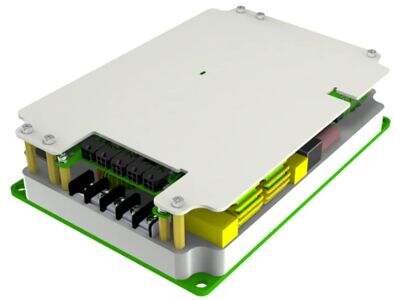Performance Differences: AC-DC vs. DC-DC Power Modules Explained
Are you interested in a relatively simple method for comparing AC-DC power fet modules to DC-DC power modules? Look no further!, we are going to dissect the main performance differences between the two power module groups, delve into differences you’ll notice in their efficiency and output, weight and size comparisons, voltage regulation and transient response discrepancies, and ultimately help you understand which choice is better for your situation. So without further ado, let’s start learning about AC-DC and DC-DC power modules!
Knowing the Fundamental Performance Difference AC-DC vs DC-DC Power Modules
First, let’s clarify what these AC-DC and DC-DC power modules are in the first place. AC-DC power SiC Module are used to convert AC voltage into DC voltage, and DC-DC power modules are used primarily to regulate the amount of voltage. AC-DC power modules are mainly in high voltage applications such as in home appliances while DC-DC power modules can be found in electronic devices that demand voltage regulation, such as smart phones and laptops.
The efficiency of AC-DC power modules also tend to be slightly better when compared to DC-DC modules. AC-DC power modules are generally less efficient than DC-DC power modules because they must first convert AC to DC, and may therefore lose energy during the process. In contrast, DC-DC power modules only need to control DC voltage and hence may achieve higher efficiency.
Comparing Efficiency and Performance Between AC-DC and DC-DC Power Modules
As for output differences, AC-DC power modules generally have a constant output voltage, while DC-DC power modules may be slightly adjusted (output voltage adjustable). This adjustable output voltage is the feature that gives DC-DC power modules their versatility and range of applications.
DC-DC power modules are ordinarily more efficient than AC-DC power modules. They are because DC-DC power modules do not have to convert AC, which means total energy loss and hence improved efficiency. However, the most effective option is the DC-DC power option, as shown in the following comparisons. Alternating current to direct power conversion implies there are better efficient and cost-effective means due to size and cost. DC-DC means are environmentally friendly because the operator only needs to obtain the module. DC-DC is environmental friendly than A C-DC Or a DC-Another?
Table statuses based on effectiveness workflow “All Versions.”
In summary, AC-DC and DC-DC power modules just have their respective strong and weak points. Knowing the important performance drive transistor differences between these two types of power modules can enable you to make the right selection for your application. Don't forget to take account of efficiency, output variation, cost and scaling aspect, voltage regulation and transient response variation in your selection process. From Power Modules to What Makes The Most Sense Allswell is here to lend a hand in navigating and selecting what is best for you.
 EN
EN
 AR
AR
 HR
HR
 DA
DA
 NL
NL
 FR
FR
 DE
DE
 EL
EL
 HI
HI
 IT
IT
 JA
JA
 KO
KO
 NO
NO
 PL
PL
 PT
PT
 RO
RO
 RU
RU
 ES
ES
 SV
SV
 TL
TL
 IW
IW
 ID
ID
 LT
LT
 SR
SR
 SK
SK
 UK
UK
 VI
VI
 SQ
SQ
 HU
HU
 TH
TH
 TR
TR
 FA
FA
 AF
AF
 MS
MS
 HY
HY
 BN
BN
 LA
LA
 TA
TA
 TE
TE
 MY
MY

